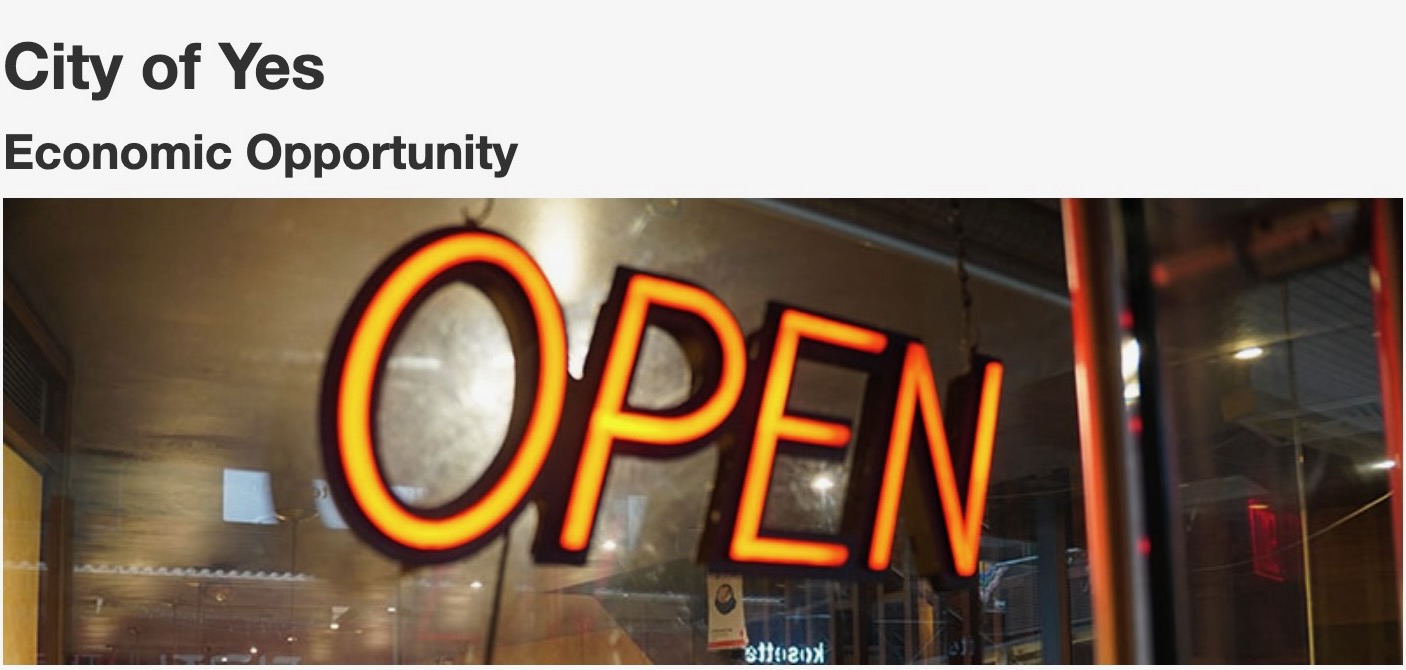
Image: Mayor's Photography Office
The NYC Department of City Planning recently announced its overhaul of the 1961 Zoning Resolution. The 1,127 page City of Yes for Economic Opportunity (COYEO) is the second of three major zoning changes the City is sponsoring. FRIENDS agrees that updating and modernizing our zoning is overdue, and COYEO has some important modernizations that we welcome, but it also makes significant changes to our zoning that will have unwelcome, unintended consequences. The Upper East Side, as well as many areas in the five boroughs, have high storefront vacancies. We had hoped that COYEO would help to strengthen our local commercial corridors--which would have made our streets safer, and reinforced the special character of our neighborhoods. However, we believe COYEO could do the opposite.
FRIENDS, along with innumerable other groups and community members, testified at the public hearing on January 24th, 2024 and submitted testimony. These are a few of the points we emphasized:
Mixing of uses in Residential Buildings
While current zoning allows home occupations in residential buildings up to 25% of a unit’s floor area, and no more than 500 SF, the proposed new zoning vastly increases the permitted size of the commercial use within apartments, as well as the number of employees who can work in someone’s home occupation.
Possible unintended consequences include:
- The zoning permits an unlimited amount of commercial foot traffic in the lobbies and hallways of residential buildings, which could create conflicts between residents and customers;
- A reduction in housing as owners combine units so that they can be used for business purposes.
- Create more difficulty filling vacant storefronts as uses like barbershops, nail salons, and beauty parlors would now be permitted to locate inside apartments.
Locating new uses in Residential Buildings
Current zoning requires that apartments be located ABOVE commercial uses in mixed use buildings. That protection for apartment-dwellers is gone in the proposed zoning.
- Zoning does not regulate hours of operation so impacts from both operation and foot traffic on neighboring apartments may be significant;
- There has been huge demand for restaurants and bars that have rooftop roof decks, and this change would permit such uses on the rooftops of otherwise residential buildings in some districts, bringing new noise and foot traffic.
- Apparently anticipating such problems, the City of Yes proposal requires that separate entrances and separate internal access should be provided for the non-residential uses located in residential buildings, but existing buildings could use the service entrance to meet these requirements.
Manufacturing Uses
Manufacturing uses would not be permitted in all neighborhood commercial districts even if they are not open to the public, and do not produce goods for the neighborhood
- This change risks filling commercial districts with dark stores, closed to the public, which could sap neighborhoods of their vitality by reducing foot traffic and making uninviting commercial corridors;
- Neighborhood commercial districts are supposed to serve the neighborhood, and if these spaces are filled with uses not serving the neighborhood, residents will have to travel further for the goods and services to meet their daily needs. This matters in neighborhoods where most people walk.
Nightclubs
For good reason, these have been prohibited in residential and neighborhood commercial districts since 1989. Nightclubs would now be permitted in all commercial districts along our avenues:
- Those with a capacity of less than 200 people may be located on most of the UES avenues such as First and Second Avenue, while nightclubs of unlimited size could locate on most of Madison Avenue.
- Nightclubs were prohibited from most neighborhoods in 1989 because of the conflicts they created with neighboring uses. The proposed zoning both expands and reintroduces the use into the same neighborhoods where they were prohibited. Those conflicts will reappear and no solution is being offered for those impacted.
Make your voice heard:
This proposal can be improved! Regulations should relate to particular communities or building types.
There is still time for the public to make a difference! The City Planning Commission adopted this proposal on March 6th and it now goes to the City Council’s Subcommittee on Zoning and Franchises for its review. The zoning proposal is enormous and has important modernizations, but it needs City Council to carefully evaluate all proposed changes and concerns, so that it can modify the proposal to create more nuanced zoning that works for everyone.
Watch our recent City of Yes Explainer with urban planning expert George Janes.

